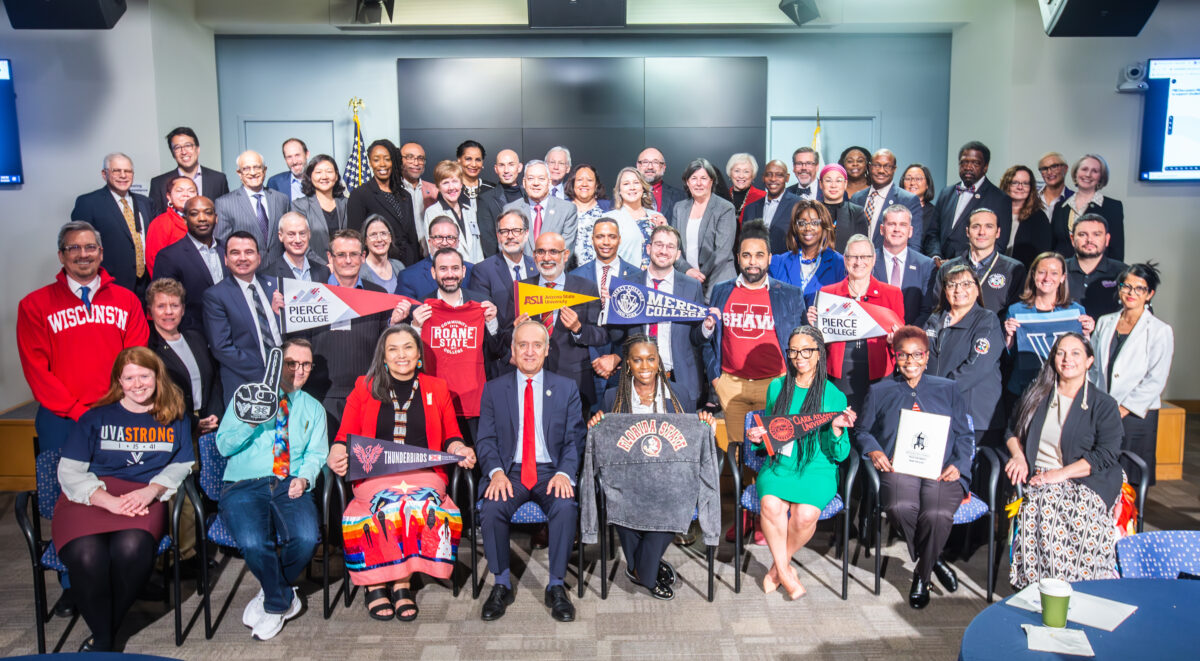Dr. Sushilla Knottenbelt Shares Why Implementing Student Experience and Belonging Interventions Matter
Published Aug 28, 2024
When the University of New Mexico implemented student sense of belonging interventions, the rate of A and B grades in those courses increased and withdrawal rates decreased. Attending to student experience and fostering students’ sense of belonging can be crucial for boosting student success because when students feel connected to their campus community, they are more likely to succeed academically and persist toward earning degrees. This is especially true for students from historically marginalized backgrounds.
IHEP spoke with Dr. Sushilla Knottenbelt, Arts and Science Director of the BA/MD Program and Principal Lecturer at the University of New Mexico, about evidence-based strategies institutions can implement to improve student experience and belonging both inside and outside the classroom, the impact on student outcomes, and what she’d like others—including policymakers—to know about this work. This conversation has been edited for length and clarity.
IHEP: If you had to recommend one or two sense of belonging interventions for all faculty members to implement in their courses, what would you suggest and why?
Dr. Knottenbelt: For faculty to understand belonging and foster a culture of growth in their class, they must develop a consistent communication strategy. This ranges from how professors write their syllabi, to how they interact during class sessions. One of my favorite ways to do this in my general chemistry courses is with a weekly email—a practice I first implemented during COVID and have maintained ever since. It is a good way to let students know about upcoming deadlines and also share positive messages, so students know that it is normal to be challenged by the course material, and that if they find the material difficult, it does not mean they do not belong and cannot succeed.
Messages should align with key points in the semester to normalize challenges in learning, reassure students they can achieve high academic standards, and provide connections to additional resources. This allows students to critically engage with the content and helps support students who may be easily discouraged by a setback, such as failing an exam.
I also recommend faculty implement an exam wrapper, an incentivized opportunity for students to review and revise their exams. After receiving a graded exam, some students may look at the grade, feel discouraged and throw it in the trash on the way out of class, not having reviewed or engaged with the feedback. An exam wrapper allows students to reflect on their strategies for preparation and analyze the types of questions they missed, and earn a small amount of credit back to their grade. This practice reinforces a growth mindset – even if you didn’t get the grade you wanted you have a chance to understand areas for improvement and where you may need support going forward.
These kinds of interventions can have a positive impact on student belonging at institutions of all sizes and types, from introductory courses at large public 4 year institutions to community colleges where students have varied backgrounds and non-academic commitments. These interventions can also mitigate stereotype threat, which is often experienced by students from underrepresented backgrounds at selective institutions.
IHEP: What support is needed to implement student experience and belonging interventions?
Dr. Knottenbelt: I highly recommend resources from the Student Experience Project (SEP), a project where faculty members at different institutions worked together to develop and implement SEP tools into courses on their home campuses. There are also many “how to” guides and templates available. Joining or starting a faculty community of practice can help share ideas and increase faculty’s own sense of belonging.
IHEP: How did more deliberately attending to students’ sense of belonging change your style of teaching or how you structure a typical class session or semester?
Dr. Knottenbelt: When I started teaching, I brought care for my students and expertise in my class content. I didn’t know about effective pedagogy, how to engage students, or how to motivate them, and did not really understand the student populations I was serving.
Through my involvement with the SEP, I now know what kinds of resources students need, and how to communicate better in-class and outside of class engagement. At first, I was nervous to implement interventions like deadline flexibility, but I’ve found students are very mindful in how and when they take advantage of that flexibility. Now, I also focus more explicitly on reinforcing student sense of belonging and communicating my growth mindset about my students. For example, I tell students that though the content can be challenging, they can meet high standards that are important to prepare them for their future courses, and I connect them to resources which can help.
Overall, this has improved my student success rates, made my work more meaningful and made me feel much more connected to my students.
IHEP: Why should federal policymakers care about the impact these interventions have had on your students?
Dr. Knottenbelt: Federal policymakers should recognize that sense of belonging interventions allow everyone to learn and work more effectively. Easy-to-implement, impactful strategies can help students feel connected with faculty, staff, and the institution, and in turn, help them persist through challenges and contribute to their long-term success. Policymakers should also know that attending to student experience and belonging can reduce equity gaps, increase retention, and improve the leaky pipelines leading into certain career fields or paths.
—
Dr. Knottenbelt’s insights can help fellow instructors create more inclusive and supportive campuses. Policymakers can play a vital role in scaling these efforts by providing necessary resources and support. Read IHEP’s new resource, How Student Experience and Belonging Interventions Can Support Strong Postsecondary Outcomes, to learn what studies show about student experience and belonging, and postsecondary success.
Photos courtesy of The University of New Mexico.


